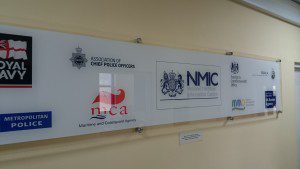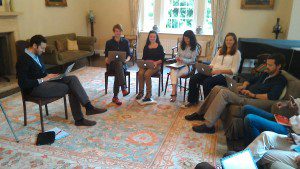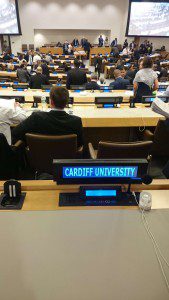 Good news from my Department. We are growing and extending research and teaching in International Relations considerably. In addition to two new staff members that will join us in September, a number of posts in International Relations on all levels (Junior Lecturer, Lecturer, Senior Lecturer, Reader, Professor) is currently advertised. The call is broad, since the goal is to build a multifaceted department which covers the entire spectrum of the discipline. In a year the Department will look differently. This is the advertisement of the posts:
Good news from my Department. We are growing and extending research and teaching in International Relations considerably. In addition to two new staff members that will join us in September, a number of posts in International Relations on all levels (Junior Lecturer, Lecturer, Senior Lecturer, Reader, Professor) is currently advertised. The call is broad, since the goal is to build a multifaceted department which covers the entire spectrum of the discipline. In a year the Department will look differently. This is the advertisement of the posts:
Major Expansion of International Relations at Cardiff University
Following the 2014 merger of the Department of Politics and International Relations with Cardiff Law School, the Cardiff School of Law and Politics is now making a significant investment in International Relations, already an area of growing strength in such fields as international political sociology and normative international theory. A range of appointments at different levels, reflecting the growing importance of this vibrant field, will make International Relations a major focus for the School. Politics and International Relations at Cardiff has long-standing and distinctive strengths in European politics, Welsh politics and comparative devolution and normative political theory.
The following positions are available:
Chairs / Readers in International Relations (3520BR)
Senior Lectureships / Lectureships / in International Relations (3523BR)
Early Career Lectureships (3531BR)
We welcome applications from scholars across all subfields of International Relations, which include IR theory and empirical and/or historical work. We are particularly interested in applicants who combine theory with methodologically sophisticated empirical or historical analysis and/or those with a regional focus such as the Middle East, Africa, and Asia.
For further details and to apply please visit: www.cf.ac.uk/jobs and http://www.cardiff.ac.uk/politics-international-relations/
Interested applicants are invited to contact Jan Donovan, PA to Professor Dan Wincott (Head of School), on DonovanJM@cardiff.ac.uk, to arrange an informal discussion
 Continuing my tour to centres which share and fuse information in order to enhance maritime security, two weeks ago, I had the opportunity to visit the UK’s National Maritime Information Centre, in short: NMIC. The center is located near Portsmouth, a place it moved to last year in September, having been based prior within the Royal Navy’s headquarters in Northwood. The centre itself was created in 2011 in the run up to the London Olympics. Initial it was meant to facilitate the protection of the UK against threats from the sea during the event. The core idea behind the centre is hence that the rapid response to emergencies at sea is enhanced through a shared information infrastructure. Yet, the work of the center was soon extended to focus on improving the information available for regular law enforcement in ports, coastlines and the country’s Exclusive Economic Zone. All of the ten ministries and agencies of the UK that deal with the sea are participating in the centre whose role is to facilitate conversations and joint actions among these.
Continuing my tour to centres which share and fuse information in order to enhance maritime security, two weeks ago, I had the opportunity to visit the UK’s National Maritime Information Centre, in short: NMIC. The center is located near Portsmouth, a place it moved to last year in September, having been based prior within the Royal Navy’s headquarters in Northwood. The centre itself was created in 2011 in the run up to the London Olympics. Initial it was meant to facilitate the protection of the UK against threats from the sea during the event. The core idea behind the centre is hence that the rapid response to emergencies at sea is enhanced through a shared information infrastructure. Yet, the work of the center was soon extended to focus on improving the information available for regular law enforcement in ports, coastlines and the country’s Exclusive Economic Zone. All of the ten ministries and agencies of the UK that deal with the sea are participating in the centre whose role is to facilitate conversations and joint actions among these. Continuing my tour to centres which share and fuse information in order to enhance maritime security, two weeks ago, I had the opportunity to visit the UK’s National Maritime Information Centre, in short: NMIC. The center is located near Portsmouth, a place it moved to last year in September, having been based prior within the Royal Navy’s headquarters in Northwood. The centre itself was created in 2011 in the run up to the London Olympics. Initial it was meant to facilitate the protection of the UK against threats from the sea during the event. The core idea behind the centre is hence that the rapid response to emergencies at sea is enhanced through a shared information infrastructure. Yet, the work of the center was soon extended to focus on improving the information available for regular law enforcement in ports, coastlines and the country’s Exclusive Economic Zone. All of the ten ministries and agencies of the UK that deal with the sea are participating in the centre whose role is to facilitate conversations and joint actions among these.
Continuing my tour to centres which share and fuse information in order to enhance maritime security, two weeks ago, I had the opportunity to visit the UK’s National Maritime Information Centre, in short: NMIC. The center is located near Portsmouth, a place it moved to last year in September, having been based prior within the Royal Navy’s headquarters in Northwood. The centre itself was created in 2011 in the run up to the London Olympics. Initial it was meant to facilitate the protection of the UK against threats from the sea during the event. The core idea behind the centre is hence that the rapid response to emergencies at sea is enhanced through a shared information infrastructure. Yet, the work of the center was soon extended to focus on improving the information available for regular law enforcement in ports, coastlines and the country’s Exclusive Economic Zone. All of the ten ministries and agencies of the UK that deal with the sea are participating in the centre whose role is to facilitate conversations and joint actions among these.



